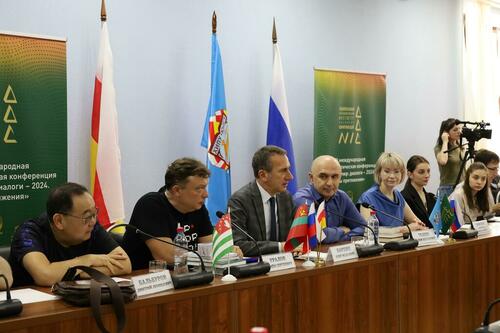Commentary of the Plenipotentiary of the President of South Ossetia on post-conflict settlement Murat Dzhioev
December 27, Georgian Foreign Minister Maya Panjikidze said at a press conference that Georgia would continue working actively to increase in 2013 the number of countries voting in support of the UN resolution on Georgia "On the situation of the internally displaced persons and refugees from Abkhazia, Georgia and the Tskhinvali region / South Ossetia, Georgia."
This statement of the Georgian minister suggests that the new Georgian government intends to continue the previous policy of Saakashvili, instead of the earlier declared balanced actions and steps to find points of convergence of views on the process of normalization of relations with neighbors and the intent "to change radicallythepolicy towards Abkhazia and South Ossetia."
The fact is that the refugee problem, along with the non-use of force and security for South Ossetia and Abkhazia, has been included into the discussion of issues of the Geneva international talks on security in Transcaucasia, which are conducted in accordance with the agreements of Dmitry Medvedev and Nicolas Sarkozy reached August 12 and September 8, 2008. Within the framework of the Geneva talks, which started in October 2008, the refugee problem was being discussed by the second working group. However, since 2009 the Georgian authorities, bypassing the Geneva discussions, where the UN serves as a co-moderator and are competently represented South Ossetia and Abkhazia, with maniacal persistence were presenting at the UN General Assembly, where the South Ossetia and Abkhazia are not presented, a draft resolution on refugees and displaced persons, the latter of which was the exact copy of the previous one.
Georgia seeks primarily the political purpose - to reflect in the document, adopted at the Assembly, as if South Ossetia and Abkhazia are the parts of Georgia and the problem of refugees and displaced persons – is the internal affair of Georgia. But this is totally untrue - South Ossetia has never been a part of the Georgian state, recognized by the international community after the Soviet collapse. Moreover, since 2008, the Republic of South Ossetia is recognized as the independent state.
Resolution on Georgia, being adopted at the UN General Assembly, is far from the norms of human rights and refugees, as in fact it is only about ethnic Georgians who became refugees through fault of the Georgian authorities. Many thousands of people displaced from Georgia on ethnicity, remain outside the purview of sponsors of the resolution, which does not take into account the position of South Ossetia and Abkhazia which are not represented in the United Nations and are not invited to the sessions of the General Assembly.
By the way, at the voting on this resolution, the majority of the countries have clearly expressed their disapproval by voting against it or abstaining from voting or taking part in the vote. This has caused concern of the Georgian politicians.
South Ossetia has repeatedly stated that such actions of the Georgian authorities have nothing to do with the desire to find solution to the complex humanitarian issues. The politicization of the refugee problem undermines the goal of the work in this direction within the framework of the Geneva talks. If Georgia prefers to conduct the discussion in such an authoritative international organization like the UN General Assembly, South Ossetia is ready to send its officials to the UN to discuss the issues and present our position on the issue of refugees at the General Assembly.
No one objects to the right of refugees to return to their former homes. However, in accordance with international law, the return should be voluntary, worthy and safe. It is clear that the main condition for the voluntary, worthy and safe return of the refugees is the signing of a legally binding agreement on non-use of force between Georgia and South Ossetia. However, the Georgian authorities are not yet ready for this step.





